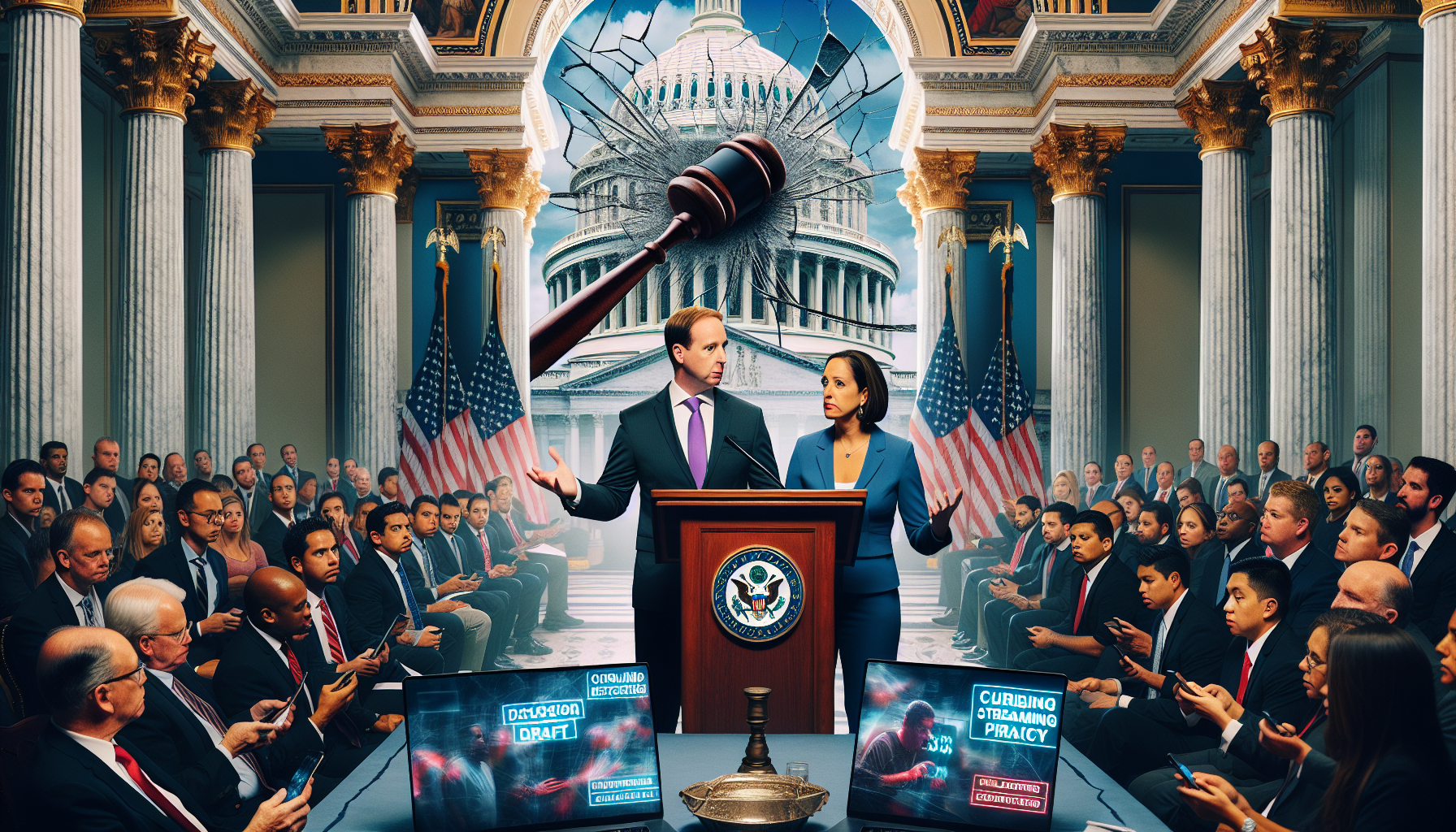U.S. senators have unveiled a bipartisan discussion draft aimed at stopping websites that illegally stream sports, empowering copyright holders to seek federal court orders blocking foreign piracy sites. The push comes as some fans say rising subscription costs are driving them to illicit streams.
The rising price of cable and streaming packages has pushed some sports fans toward illegal streams, prompting a fresh effort in Congress. Democratic Sen. Adam Schiff of California is promoting the Block Bad Electronic Art and Recording Distributors Act — the Block BEARD Act — a bipartisan framework he is advancing with Sen. Chris Coons of Delaware and Republican Sens. Thom Tillis of North Carolina and Marsha Blackburn of Tennessee. The senators announced a discussion draft on July 31, 2025, that would let copyright holders ask U.S. federal courts to order internet providers to block foreign websites dedicated to piracy.
“This is an effort to allow copyright holders to go to court and say, hey, this is my property. And this foreign site is predominantly in the business of theft,” Schiff said. Coons framed the issue as a consumer‑security risk: “Maybe you do get a chance to watch the Eagles for free or to see the latest movie you want to watch. But what you're also doing is opening the front door to all of your data, your finances, your web‑browsing history,” he said.
For Philadelphia Eagles fan Dai Nixon, a podcaster in Charlotte, N.C., cost is the driver. He said he pays about $83 a month for YouTube TV but turns to the free site NFLBITE when the games he wants aren’t available on sanctioned platforms. “We have to purchase these different subscriptions just to keep up with our favorite sports teams, which is, you know, kind of ridiculous,” Nixon said. “I'm not going to, you know, kick out over 300, 350 bucks annually just to watch them every week when I can do the same thing for not that price.”
About one in three NFL fans watched at least some games on illegal platforms in 2023, according to a survey by Oddspedia. Mike Smith, a professor of information technology and public policy at Carnegie Mellon University, said current U.S. law makes enforcement difficult: “There's just not much they can do to shut down these sites.” Earlier this year, authorities — working with Egyptian law enforcement after a yearlong investigation — announced the shutdown of StreamEast, a major live‑sports piracy network; similar sites quickly reappeared.
Smith’s research on site‑blocking efforts abroad finds that when governments block access to multiple piracy sites, consumers are more likely to shift to paid legal services. “Just blocking access to the site from within the country increases people's likelihood to pay for legal content,” he said, summarizing work that measured a 7%–12% increase in use of legal services when multiple sites were blocked.
Nixon shrugged off concerns about either data theft or harm to rights holders. If his preferred site is blocked, he said, “Every system can be finessed, just ask the president. So it may be a bump in the road, but the road is still there.”
The senators say they hope to release a bicameral version with House allies by year’s end. NPR said it sought comment from websites that pirate NFL games; none responded.
Editor’s note: While lawmakers are describing the Block BEARD Act as bipartisan legislation, it is currently a Senate discussion draft rather than a formally introduced, numbered bill.

